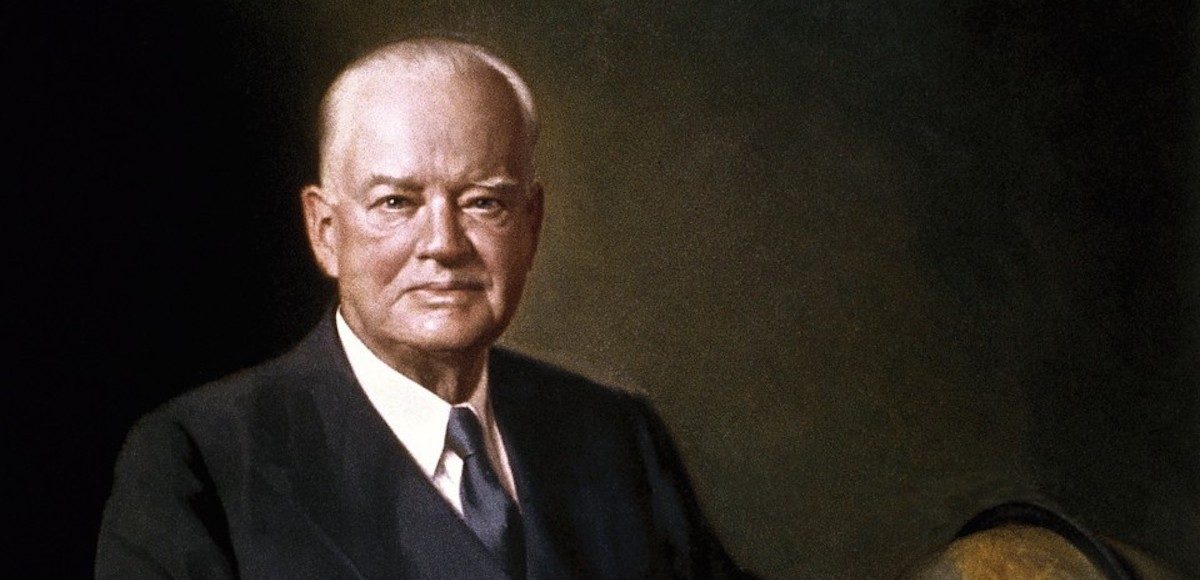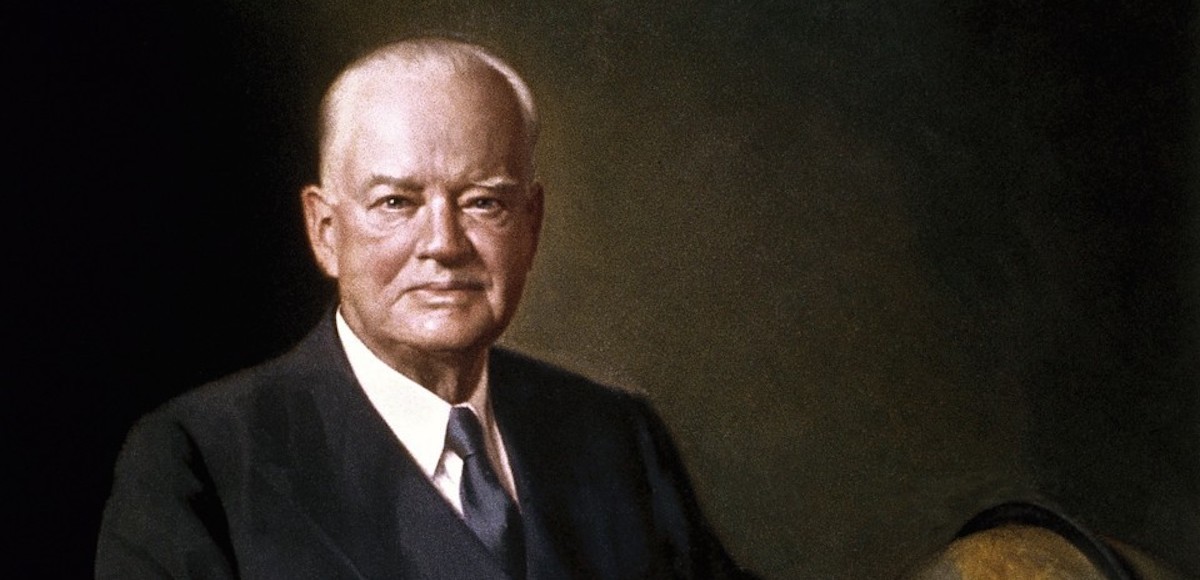

Portrait painting of Herbert Hoover, 31st President of United States of America shown in an undated photo. (Photo: AP)
Using comparative bar charts, I’ve analyzed the economic policies of Presidents Barack Obama, George W. Bush, Bill Clinton, Ronald Reagan, and Richard Nixon.
My basic conclusion was that economic policy moved in the right direction under Reagan and Clinton and moved in the wrong direction under Obama, Bush, and Nixon. Though I always included the caveat that I was agnostic about whether the various presidents deserved credit/blame for the changes that happened during their tenure.
Now let’s go back in time and look at the unambiguously awful economic record of Herbert Hoover. I’ve written about Hoover’s statism on several occasions and thought there was no need for an overall assessment since there was near-unanimous agreement that he was a failure, even if some people don’t understand why.

But near-unanimous is not the same as unanimous. And I was horrified to read that David Frum actually thinks Herbert Hoover should be some sort of role model for today’s Republicans. Here are some excerpts from his Atlantic column, which looks at a new biography of Hoover.
Hoover commenced his political life as a progressive-leaning Republican. …progressives like Hoover…accepted some increased government regulation of industry…endorsed heavier taxation of inheritances. …it’s possible to imagine a Hoover presidency that signed into law some kind of Social Security system… Hoover’s old party could learn things from his impressive career of public service. …Hoover’s astounding accomplishments and generous impulses have been effaced by polemical narratives written to serve polemical political purposes. Such distortions are offenses against historical memory.
Before we look at his economic policies, I should acknowledge that Frum makes a compelling argument that Hoover was a fundamentally good person with some impressive achievements both before and after his time in the Oval Office.
But my presidential economic scorecards are very dispassionate. I’m only looking at the changes in economic policy that occurred while a president was in office.
And by that very neutral benchmark, Hoover was terrible. Nothing but bad policy.

I give extra weight to the protectionist Smoot-Hawley legislation, which surely must rank among the worst bills ever enacted. The tax hike in 1932 also gets some extra weight because of the radical increase in marginal tax rates — the top rate was increased from 25% to 63%.
By the way, this assessment (like all my previous assessments) only includes policies that were adopted.
If I included policies that should have been adopted (sins of omission rather than sins of commission), Hoover would get severely dinged for his failure to prevent a severe contraction of the money supply by the Federal Reserve (those interested in such issues should watch this George Selgin video and read this George Selgin article for more information).
And if you want more information on Hoover’s record, I strongly recommend this article by my buddy from grad school, Steve Horwitz.
By the way, the Wikipedia entry on Herbert Hoover is very accurate in noting that he engaged in “large-scale interventions.”
As president from 1929 to 1933, his ambitious programs were overwhelmed by the Great Depression, which seemed to get worse every year despite the increasingly large-scale interventions he made in the economy.
But it is grossly inaccurate because it says that the economy got worse “despite” that intervention rather than “because of” that intervention.
There’s one other blurb that is worth sharing, just in case anyone thinks that I’m unfairly characterizing Hoover as a statist.
FDR aide Rexford Tugwell would claim in a 1974 interview that “practically the whole New Deal was extrapolated from programs that Hoover started.”
I’ll close by recycling a Center for Freedom and Prosperity video that reviews the anti-market policies of Herbert Hoover and Franklin Roosevelt.






